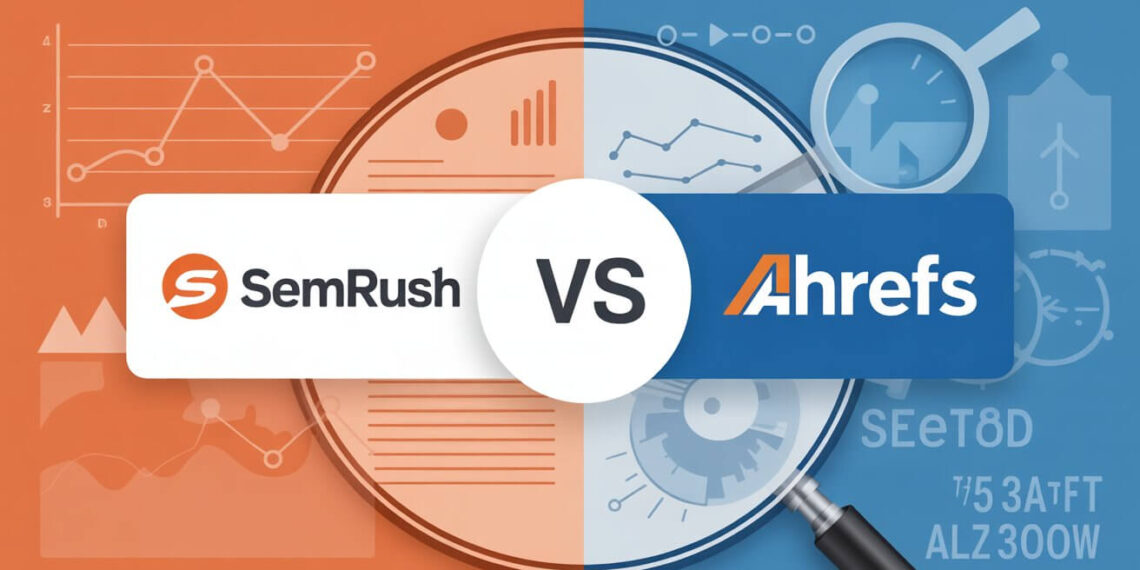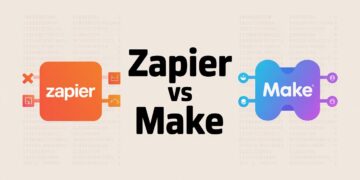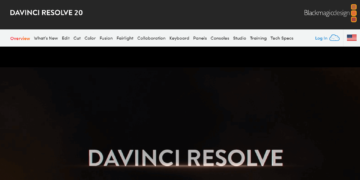In the competitive world of digital marketing, having the right SEO tool is not a luxury it’s a necessity. Whether you’re running a personal blog, managing a business website, or optimizing multiple client sites, your success heavily depends on how well you can research keywords, audit websites, track rankings, and analyze backlinks. Two names dominate this space: SEMrush and Ahrefs.
Both tools are packed with powerful features, but which one is right for you in 2025? This comprehensive SEO tool comparison will break down the differences between SEMrush and Ahrefs, helping you choose the platform that fits your goals and budget.
User Interface and Ease of Use
When it comes to user experience, both platforms have taken strides to become more intuitive, but they offer very different visual styles.
SEMrush presents a more robust and data-heavy dashboard, with extensive side navigation and dozens of tools grouped into categories. It’s ideal for marketers who want a full suite of tools in one place, including advertising and social media features.
Ahrefs, on the other hand, takes a cleaner, more focused approach. Its interface is less cluttered, and it’s easier for beginners to find their way around. If your primary focus is SEO, and you prefer a minimal but effective UI, Ahrefs offers a faster learning curve.
Keyword Research
Keyword research is a critical component of any SEO strategy, and both tools provide high-level functionality.
SEMrush’s keyword tool, known as the Keyword Magic Tool, offers access to a vast database of search terms. It allows you to filter results by intent (informational, navigational, transactional), match type, and even question-based keywords. SEMrush is also strong in identifying long-tail keywords, making it ideal for content strategy and blogging.
Ahrefs counters with its Keyword Explorer, which includes data from multiple search engines like Google, YouTube, Amazon, and Bing. It provides keyword difficulty scores, click metrics, and parent topic suggestions to help guide your content planning. Ahrefs often wins points for the accuracy and freshness of its keyword data.
If your goal is precision and depth, Ahrefs features in keyword analysis may be more suitable. For broader marketing needs, SEMrush holds its ground with versatility.
Site Audit and Technical SEO
Technical SEO is the backbone of on-site optimization, and both tools excel in this category.
SEMrush’s site audit tool provides a comprehensive overview of your website’s health. It scans for over 140 issues, including broken links, slow loading pages, missing meta tags, and crawlability errors. Its visual dashboards make it easy to prioritize fixes.
Ahrefs’ site audit tool is equally powerful, with in-depth crawl reports and charts showing performance over time. It digs deep into site structure and internal linking opportunities. While both offer scheduled audits and alerts, Ahrefs delivers faster crawl speeds for large websites.
If you’re focused on technical SEO audit tools, both platforms are impressive, but SEMrush edges ahead with its broader range of insights for marketing professionals.
Backlink Analysis
Backlink analysis software is where Ahrefs shines. Known for having one of the largest and freshest backlink databases, Ahrefs offers comprehensive reports on referring domains, anchor texts, link types, and lost links. Its link intersect tool allows you to find websites that link to your competitors but not to you ideal for building outreach strategies.
SEMrush also provides excellent backlink analytics, including toxic link detection, historical link tracking, and link building tools. However, Ahrefs is generally considered more reliable when it comes to backlink freshness and database size.
For SEOs prioritizing link building and backlink tracking, Ahrefs remains the go-to solution in 2025.
Rank Tracking and Position Monitoring
Both tools include robust rank tracking tools that allow you to monitor your position across multiple search engines and locations.
SEMrush’s Position Tracking tool lets you track keywords on a daily basis, view changes in SERP features, and compare your performance against competitors. It supports mobile and desktop tracking and is especially useful for local SEO.
Ahrefs Rank Tracker provides a clear overview of position changes, estimated traffic, visibility scores, and keyword distribution. You can also group keywords by tags to better organize your campaigns.
Both tools offer scheduled reports and alerts, but SEMrush may be more flexible in terms of layout and customization.
Content and Competitor Analysis
Creating SEO-friendly content requires insight into what’s already working. Both tools offer content-driven features for competitor and gap analysis.
SEMrush’s content tools include the SEO Content Template, On-Page SEO Checker, and Topic Research tool. These provide optimization tips based on your target keywords and top-performing content from competitors.
Ahrefs’ Content Explorer is a standout feature that lets you search billions of pages and analyze their traffic, backlinks, social shares, and publishing dates. It’s particularly effective for finding content SEO tools to guide blog or video production.
For content gap analysis and inspiration, Ahrefs provides more comprehensive data. But if you want actionable content optimization recommendations, SEMrush integrates better with writing workflows.
Additional Features
SEMrush goes beyond SEO. It includes tools for:
-
PPC and display advertising
-
Social media scheduling and tracking
-
Local SEO tools for Google Business Profile management
-
Competitive research across advertising channels
Ahrefs, while more SEO-focused, also offers:
-
SERP overview snapshots
-
Historical SERP data
-
API access for custom reporting
-
Link building tools powered by Content Explorer
If you need an all-in-one digital marketing suite, SEMrush wins. But for pure SEO performance, Ahrefs keeps things lean and powerful.
Pricing and Plans
Here’s how SEMrush pricing vs Ahrefs pricing compares in 2025:
Plan |
SEMrush (Monthly) |
Ahrefs (Monthly) |
|---|---|---|
Entry-Level |
$139.95 |
$129 |
Mid-Tier |
$249.95 |
$229 |
Advanced |
$499.95 |
$399 |
For agencies and teams, SEMrush provides better value. For solo SEOs or freelancers, Ahrefs may offer a more streamlined and budget-friendly experience.
Pros and Cons Summary
SEMrush
Pros:
-
All-in-one digital marketing platform
-
Advanced keyword and PPC tools
-
Social media and local SEO tools
-
Strong competitor insights
Cons:
-
Steeper learning curve
-
Can be overwhelming for beginners
-
Pricier at higher tiers
Ahrefs
Pros:
-
Best-in-class backlink analysis
-
Accurate and fresh keyword data
-
Clean, user-friendly interface
-
Excellent content and SERP research tools
Cons:
-
Limited features beyond SEO
-
Fewer integrations and marketing tools
-
Costs can add up with add-ons
Which Tool Is Best for You?
-
Freelancers & Bloggers: Ahrefs is ideal if you’re focused solely on SEO and want top-tier data without distractions.
-
Marketing Agencies: SEMrush offers the broader toolkit needed for managing multiple clients across disciplines.
-
In-House SEO Teams: Both tools are valuable, but SEMrush’s integration with paid search and social channels gives it an edge.
-
Content Creators: Use Ahrefs for research and inspiration; use SEMrush for content planning and optimization.
-
Local Businesses: SEMrush’s local SEO tools and competitor tracking make it the stronger choice.
Final Verdict
When comparing SEMrush vs Ahrefs, the answer depends on your priorities. Ahrefs leads in keyword precision, backlink analysis, and content research. SEMrush excels in all-around marketing features, PPC insights, and social media tools.









